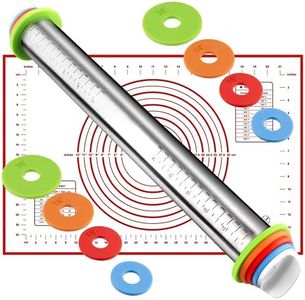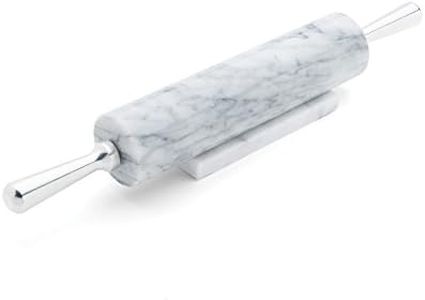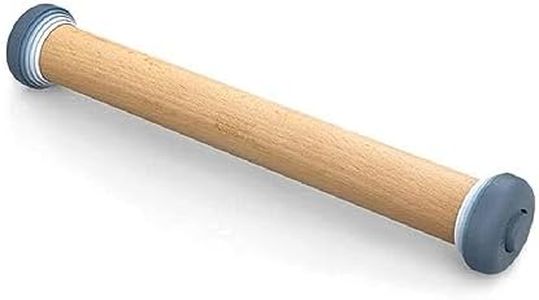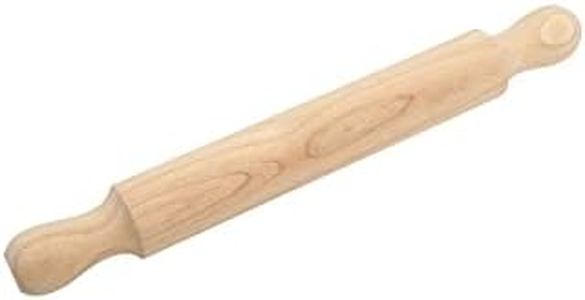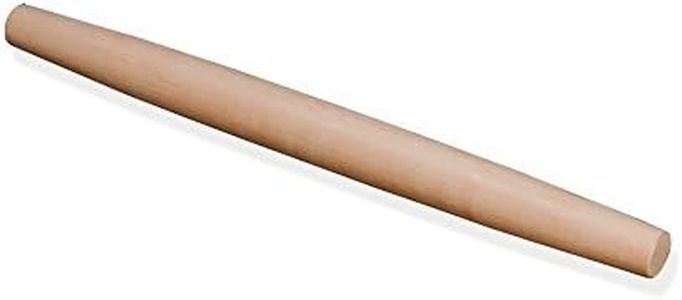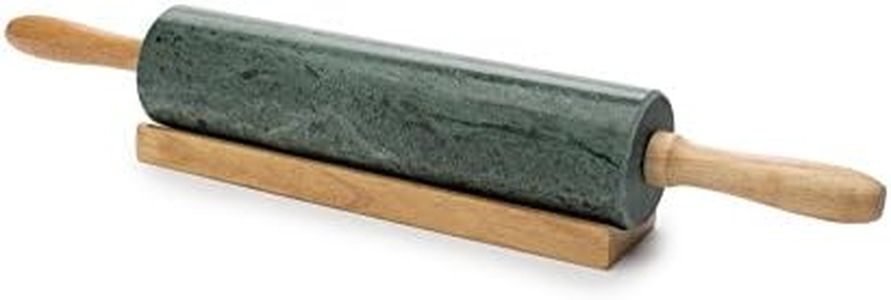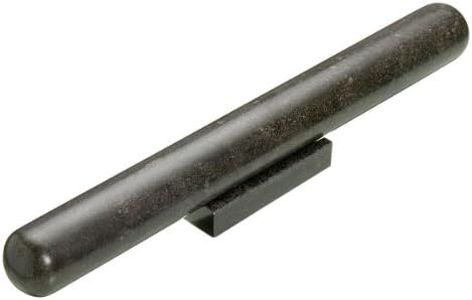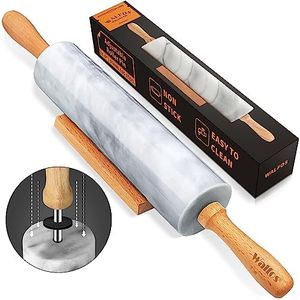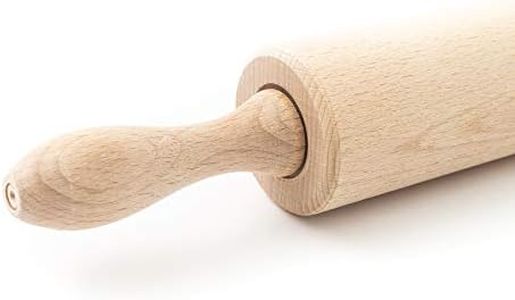We Use CookiesWe use cookies to enhance the security, performance,
functionality and for analytical and promotional activities. By continuing to browse this site you
are agreeing to our privacy policy
10 Best Rolling Pins
From leading brands and best sellers available on the web.By clicking on a link to a third party's website, log data is shared with that third party.
Buying Guide for the Best Rolling Pins
Choosing a rolling pin might seem straightforward, but finding the right one can make a big difference in your baking experience. Rolling pins come in a variety of materials, sizes, and styles, each designed for different purposes and baking preferences. Before buying, consider what you will mostly use it for—cookies, pie crusts, pasta, or something else—and what feels most comfortable in your hands. The design and material of the rolling pin can also impact how easy it is to clean, control, and store.MaterialRolling pins come in several materials such as wood, marble, stainless steel, and silicone. The material affects weight, ease of cleaning, non-stick qualities, and how the pin handles temperature. Wooden pins are classic and comfortable to use but need occasional oiling and aren’t dishwasher-safe. Marble pins are heavy and good for rolling out pastry dough (since they stay cool), but they can chip. Stainless steel is easy to clean, often hollow and lightweight, and can be chilled for better results. Silicone is non-stick and dishwasher-safe, but may not be as traditional or provide as much control. Think about the types of dough you’ll prepare most often and how much maintenance you want to do.
Style (Shape)The main types of rolling pin shapes are the classic handled pin (American style), the French pin (tapered, handleless), and straight dowel. Handled pins are easy for beginners and provide leverage. French pins are more versatile and work well for nuanced rolling with better dough control, especially for pastries and delicate doughs. Straight dowels are great for even thickness but require a bit more skill. Consider what feels more natural for you to grip and control, and whether you want the precision of a tapered pin.
LengthRolling pins vary in length, usually between about 10 and 20 inches. Shorter pins are great for rolling out small amounts of dough or working in tight spaces, while longer pins are useful for rolling out large sheets of dough, such as for pies or pizza. If you mostly bake cookies or pastries in small batches, a shorter pin is sufficient. For larger baking projects, choose a longer pin to cover more surface area easily.
WeightThe weight of a rolling pin can affect how much effort you need to put into rolling out dough. Heavier pins, like those made from marble or thick wood, can make it easier to flatten stiff doughs since gravity helps do some of the work. Lighter pins require more manual effort but give you more control over delicate doughs. If you often work with tough doughs or want less strain on your arms, a heavier pin may be the best; if you work with very tender or soft doughs, the lighter pin may offer better control.
Non-Stick PropertiesSome rolling pins are designed with non-stick surfaces, such as silicone or coated stainless steel, to prevent dough from sticking. Traditional wooden pins may need to be floured regularly during use. If you want to minimize sticking and cleanup, consider non-stick options or pins that can be chilled. If you enjoy traditional baking and don’t mind using more flour, wood can still be an excellent choice.
Ease of CleaningEase of cleaning is important, especially if you bake often. Wooden pins are not dishwasher safe and require careful hand washing and drying. Marble and some steel or plastic pins can be wiped down or even washed in a dishwasher, making them easier to care for. Think about how much cleanup you’re willing to do and whether the pin is prone to absorbing odors or stains.
